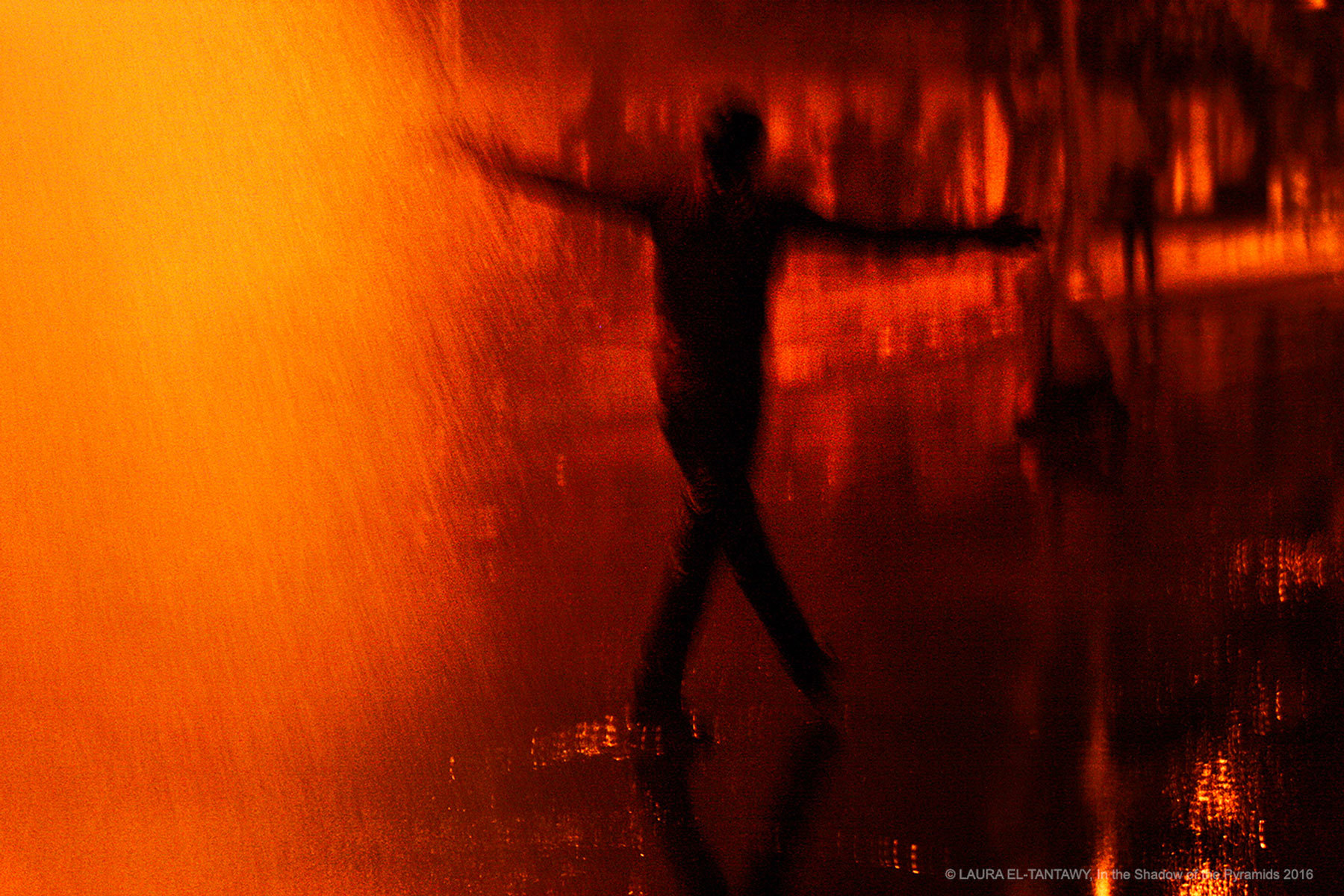Five years on from the Egyptian Revolution of 2011, all is not as it should be. As recently reported by the Economist, youth unemployment sits at over 40%, university graduates are less likely to be employed than their illiterate peers, and unrest is brewing. “Dreaming is almost a luxury in Egypt right now,” muses Laura El-Tantawy, the Egyptian photographer and creator of the Deutsche-Börse-nominated photobook In The Shadow of the Pyramids. “An entire generation is being forced to settle.”
According to El-Tantawy, the people rose up in 2011 demanding three things: “Bread, social justice, and freedom.” Half a decade and two Presidents later, the people are still waiting. “Protesters, especially young people, came from across the country, knowing they might get killed. But it didn’t matter: they had something to fight for,” El-Tantawy explains, “But now young people are being kidnapped and disappearing; there are of all these tormented families who don’t know where their kids are. It’s appalling,” she says. A second revolution might yet come to pass: “It might seem quiet now, but that emotion is going to take us somewhere. And it’s not going to be a good place.”
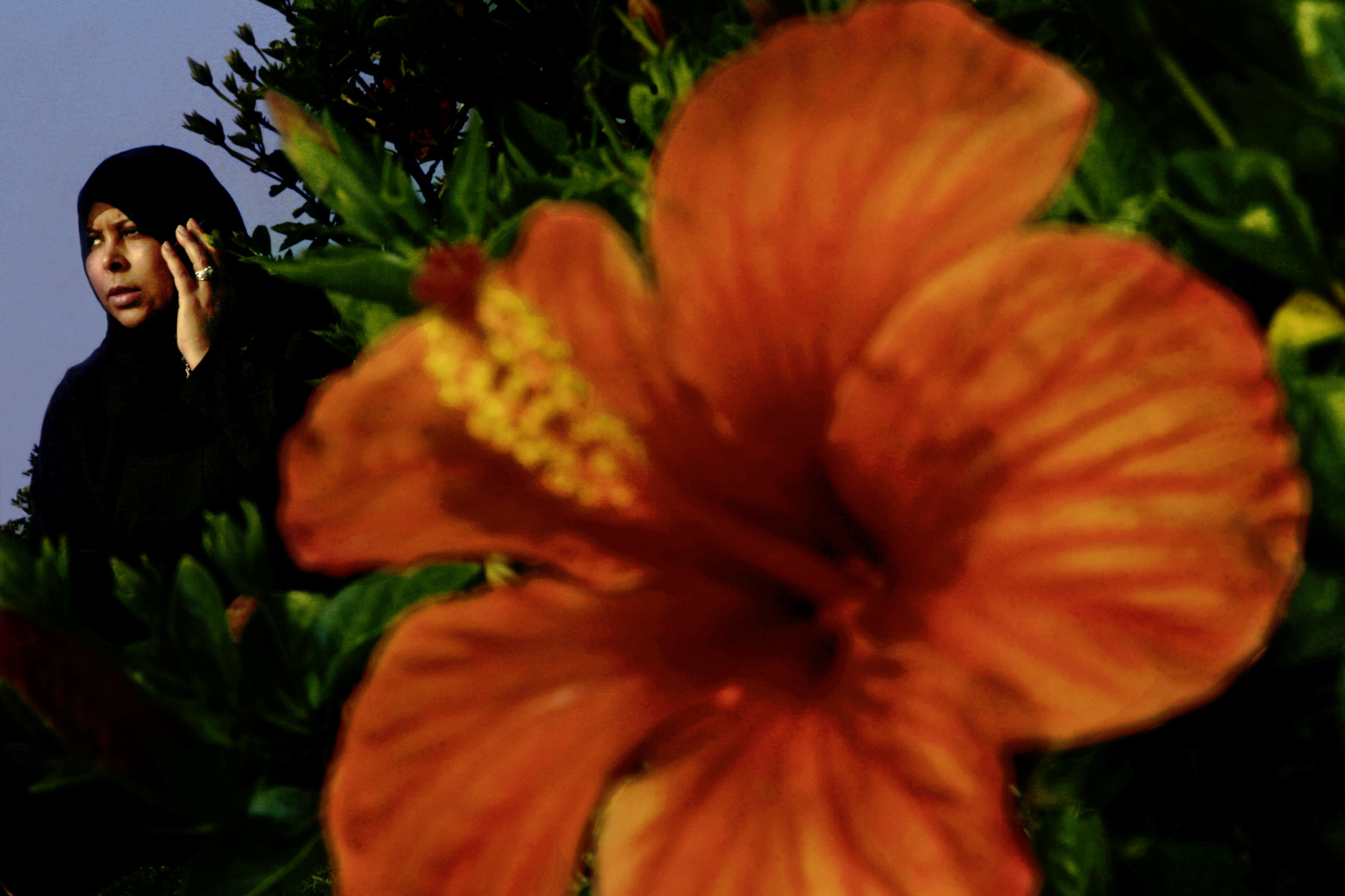
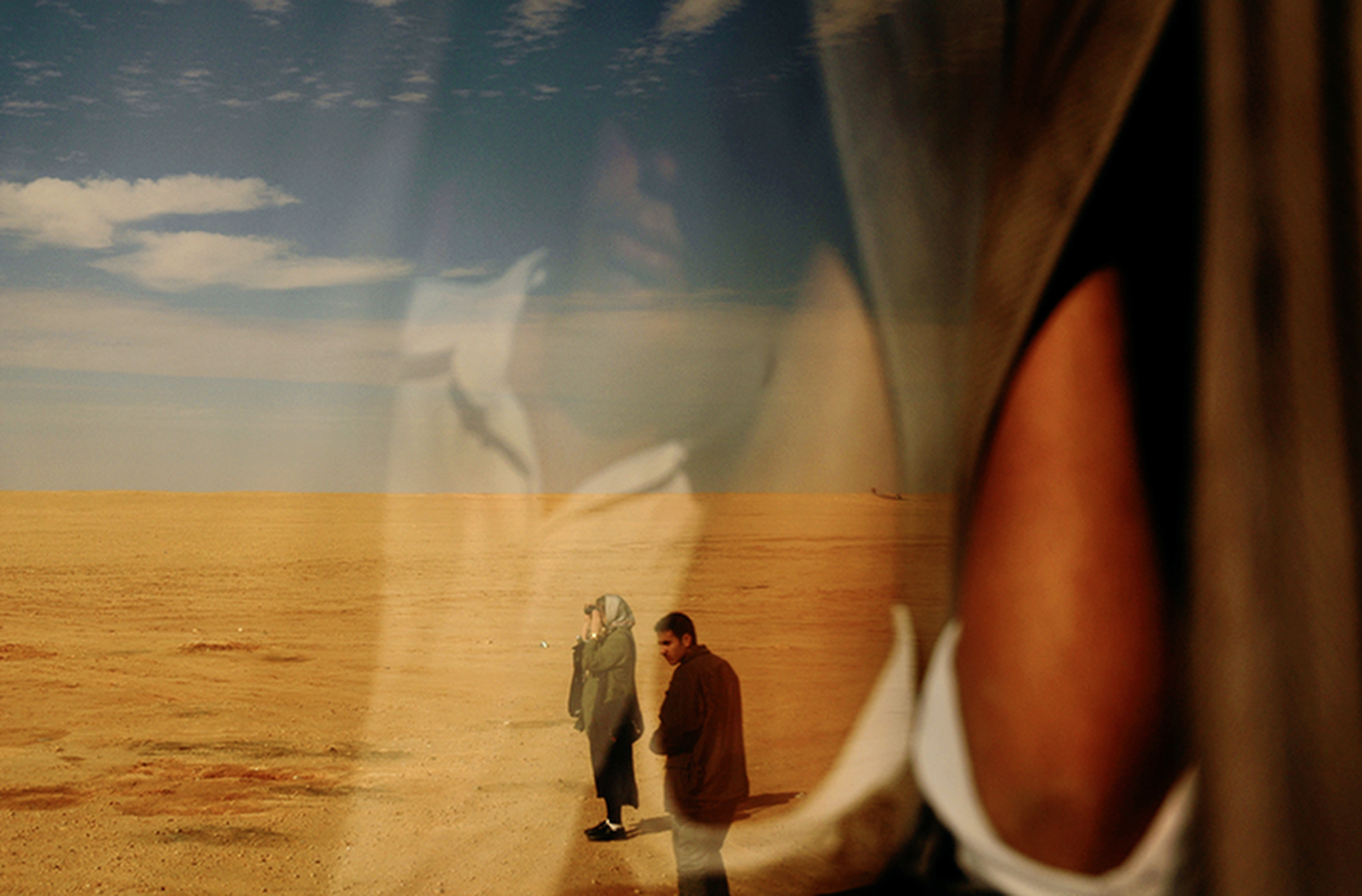
Perhaps because of El-Tantawy’s personal involvement and profound commitment to the work, In the Shadows defies genre and resists labels. It sits particularly uncomfortably under any term approaching photojournalism for the illusion of objectivity implied therein. “The whole idea of neutrality is something I really don’t believe in,” she declares, “I always have strong opinions, I’m very pro-revolution, and my photography is a way to explore those opinions.”
As such, she objects to much of the simplified coverage splashed across the Western media. The role of women in the Revolution was one such point of contention. “Women played a frontline role throughout; I saw women fighting tooth and nail against the police and other protestors from opposing camps, as well as tending to men when they were injured in makeshift clinics on the street,” she explains. “Women were always there, right from the start.” Yet their struggles were quickly erased as stories of widespread sexual abuse in Tahrir Square were picked up by Western media outlets. “The way it was covered made all women look like victims,” she notes, dismissing any sense of agency and any significance to the battles they fought and won. Once again, it became a circus in which to demonize Arab men for a gawping Western audience.
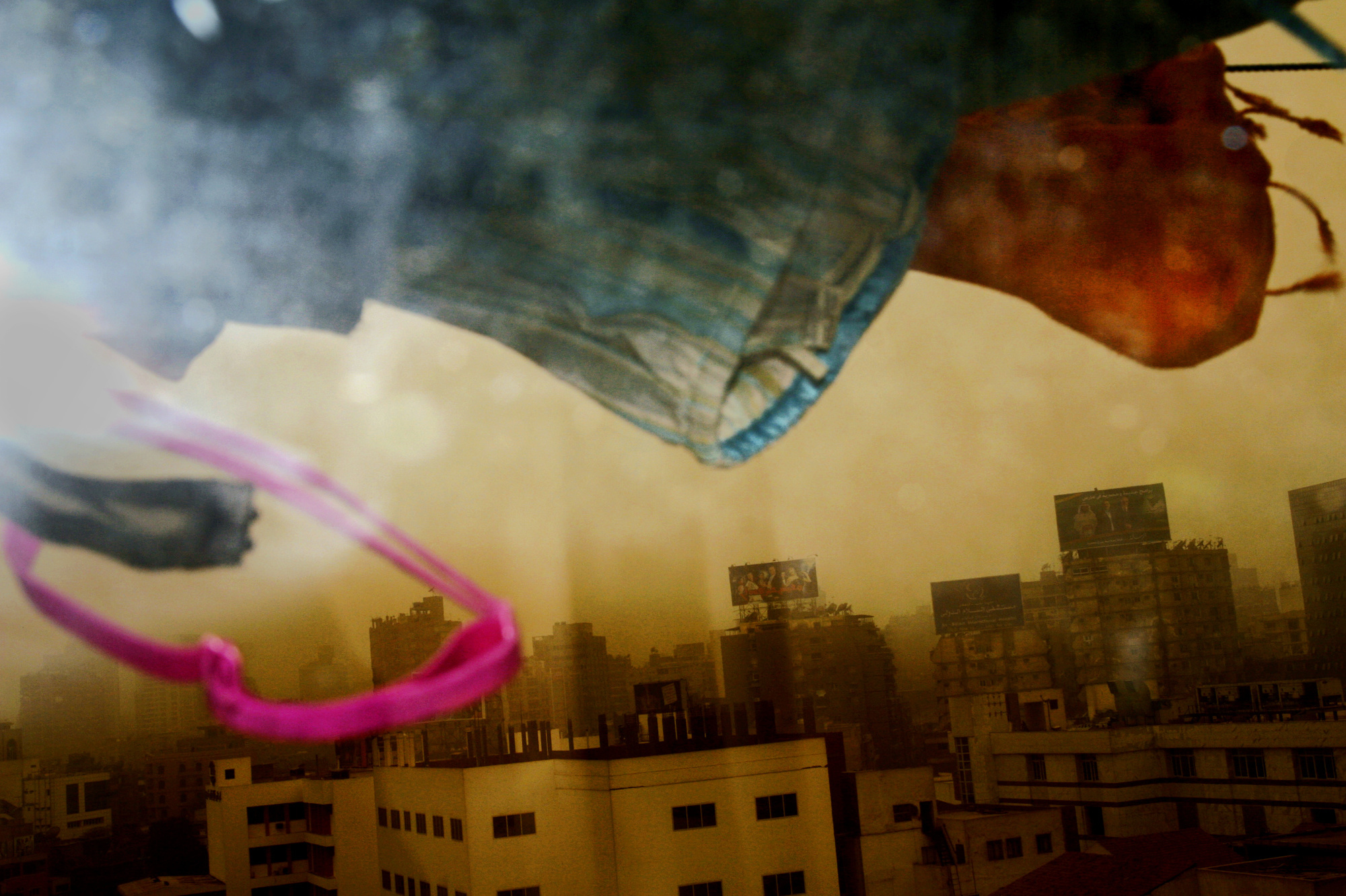
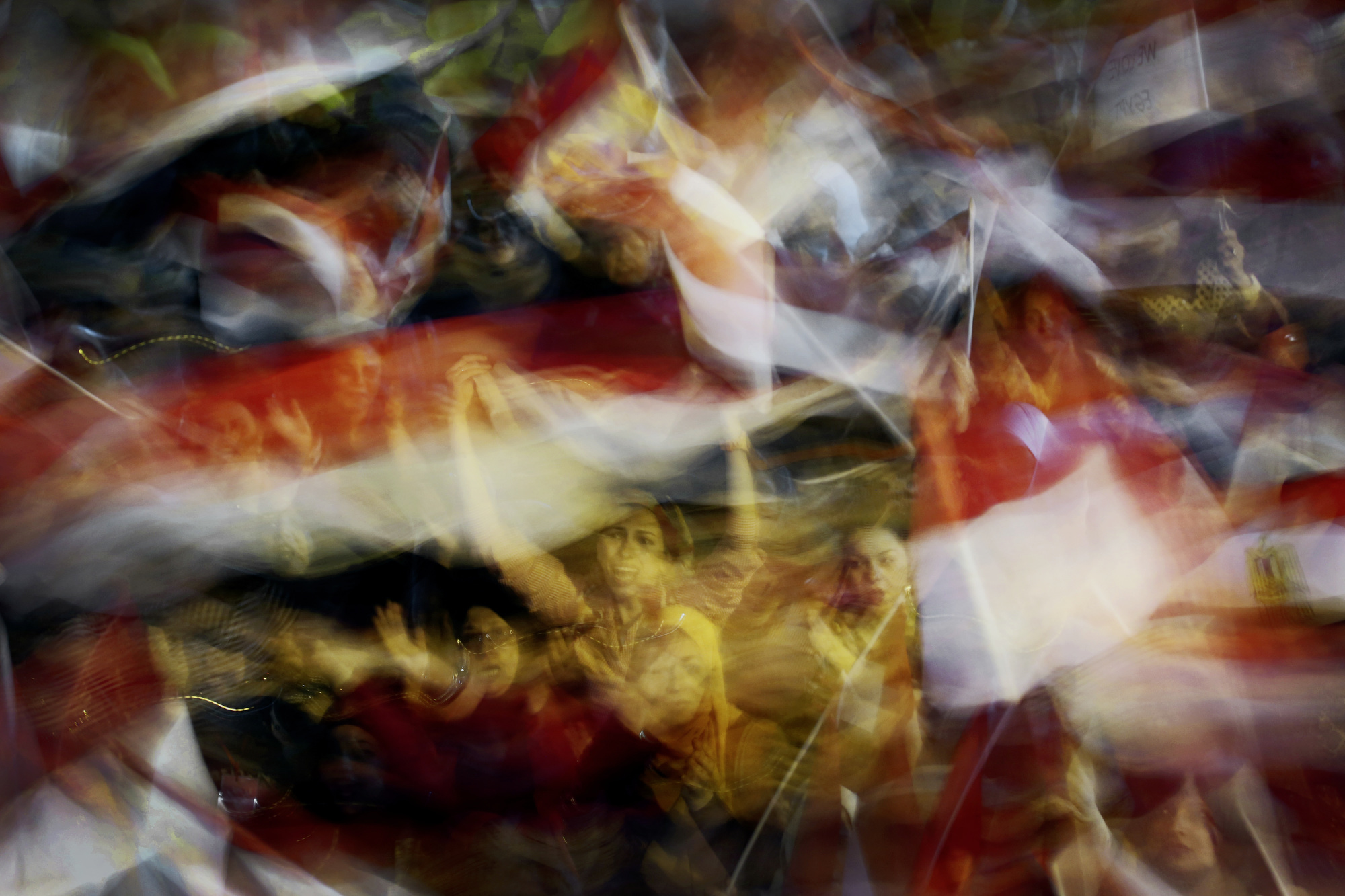
In that context, El-Tantawy’s book remains as urgent as ever. It captures the struggle and the contested aftermath of the 2011 revolution in a series of challenging images that quiver with the energy of a people in revolt. The hope, the fear, and the unspeakable grief of a nation destabilized play out across a series of impressionistic snapshots ranging from sharp close-up portraits to tumultuous, hazy panoramas. Crowds blur as they flee from the murderous repression of the state, and mothers shed tears for wounds that will not heal.
The book began when El-Tantawy was looking to prove herself as a freelance photographer, but the project soon shifted when the scale of Egypt’s unrest became clear. Indeed as an Egyptian, the revolution was as much a part of her own history as it was a globally significant phenomenon; the professional project became a personal pilgrimage. Throughout In the Shadows, which blends childhood shots with fearless protest imagery from Tahrir Square, the symbolic center of the Revolution, the sense of El-Tantawy being an insider thrills in each new image.
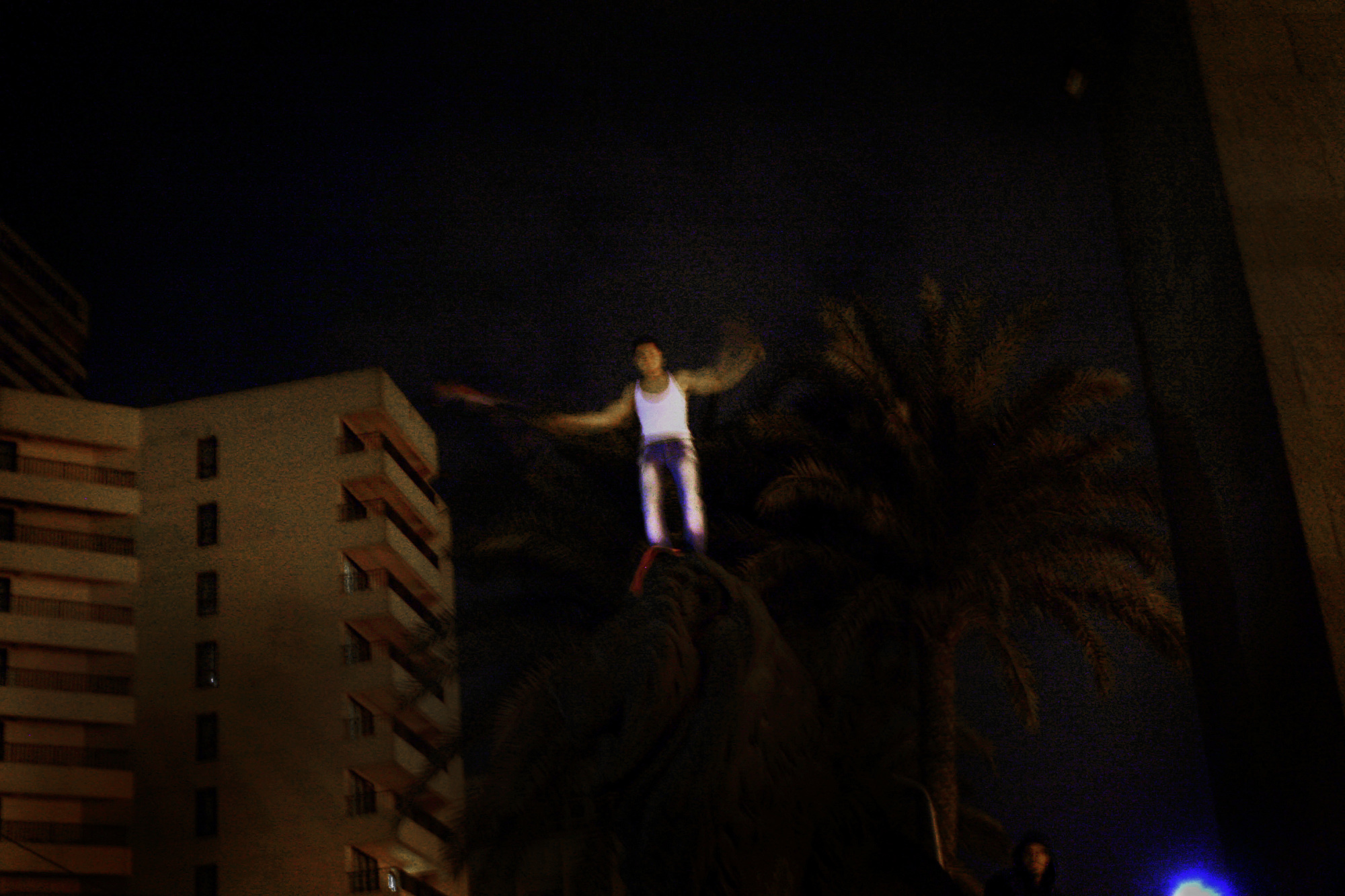

The media within Egypt posed its own problems of representation, however, and history is being rewritten under reigning President Sisi. The role of young people is being minimized for clear political reasons. Acknowledging the power young people can have is a risk the Egyptian state is unwilling to take at a time when it is manifestly failing its new generation. El-Tantawy remains defiant about their role, however: “They played a key part in the revolution: they were the Facebook people, the people calling for protests on Twitter, they were the ones mobilizing people. Now the authorities regard them with caution. The government is kidnapping these young activists, snatching them from their schools, homes, and universities, because they feel like they’re a threat to the regime.” Rather than holding the key to the nation’s future, in the eyes of the government, young people hold the match to relight old fires.
Such issues of representation loom large five years after the revolution, and In the Shadows functions as a critical intervention in the historicization process. Textbooks are being written by the government that are “removing names of people who played key roles and adding in others,” she explains, “They are completely manipulating the narrative.”
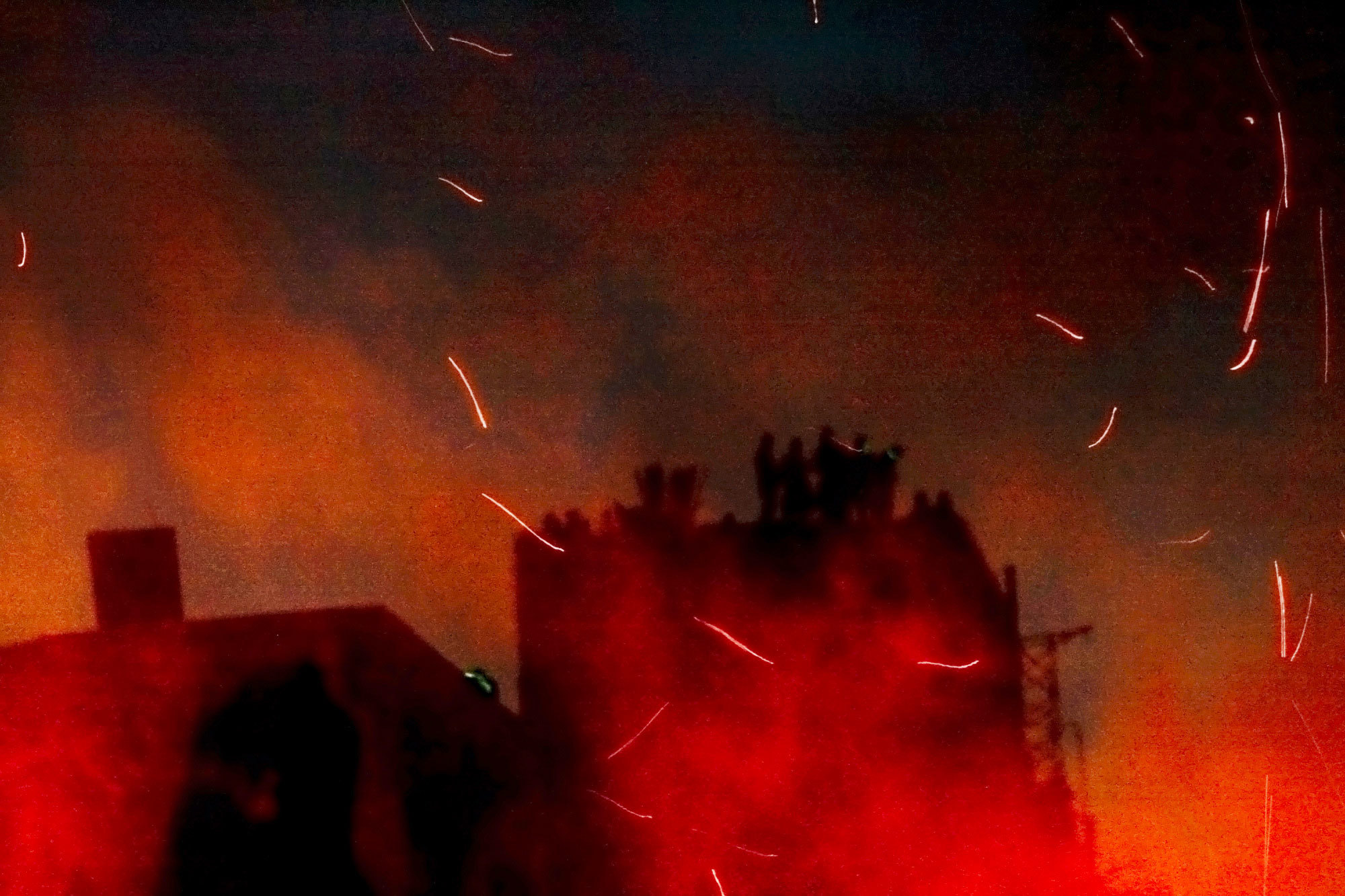
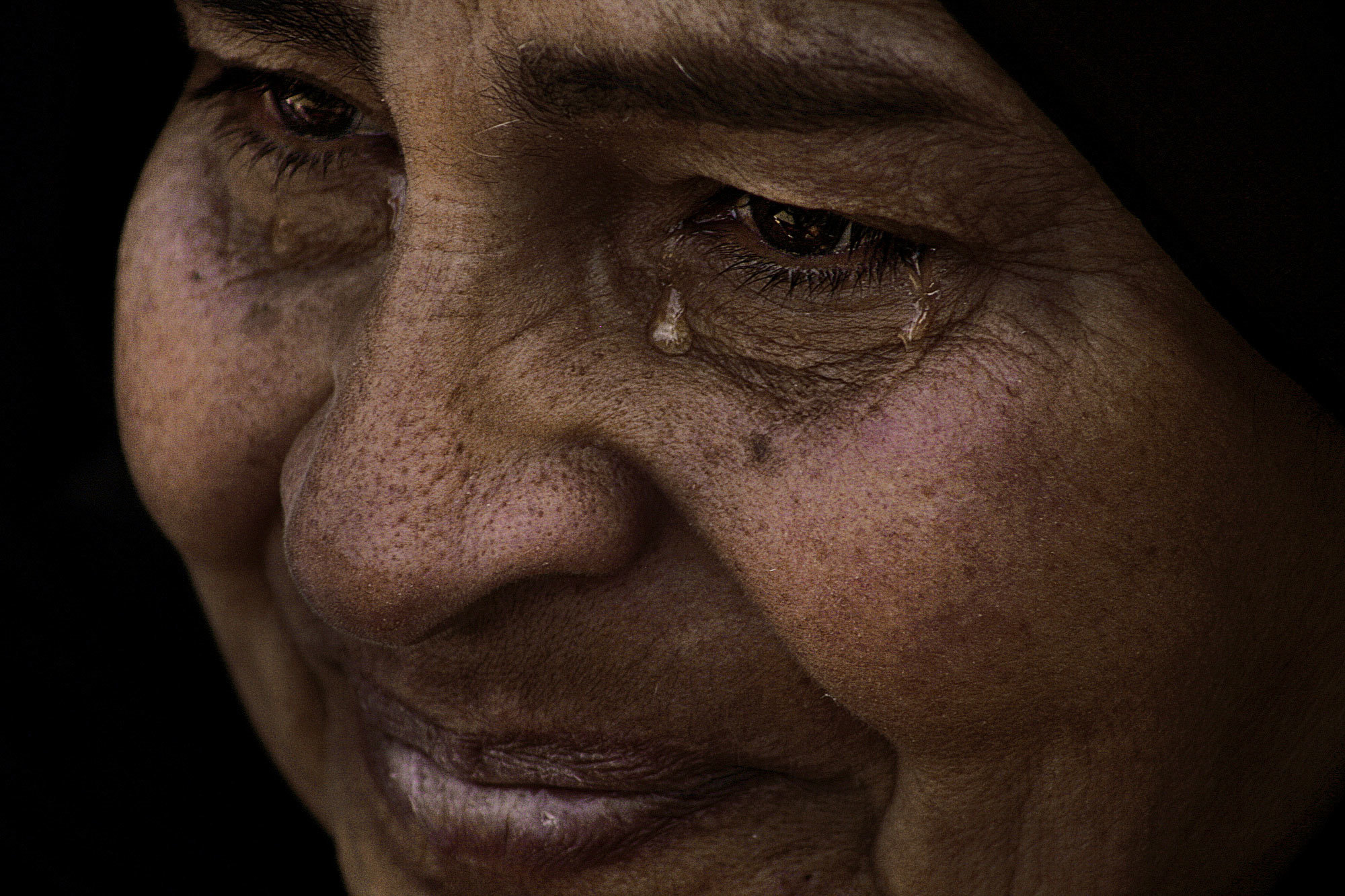
To stop the state effectively re-writing history, she thinks governmental recognition of the significance of the Revolution is the first step, but one unlikely to happen under the despotic rule of the current President. In lieu of official action, In The Shadows and creative work like it remains one of the few avenues to ensure history remains in the hand of the people, yet for now, it remains relatively unknown in Egypt. As a self-published book, it was out of the price range of many Egyptians, and El-Tantawy has not yet been able to circulate her images for fear of government censorship and crackdown.
As the conversation draws to a close, I ask her if she remains optimistic about the future of Egypt. In light of its current political stagnation and the traumatic struggles to which her book bears witness, El-Tantawy remains defiant.
“If you’re not optimistic, all that’s left is negativity. And that isn’t fair: it’s not fair to the people who lost loved ones during the Revolution, people who were fighting for everybody’s sense of dignity and a better Egypt for all of us. For them, and for everyone now, you have to believe that we will get the Egypt we were fighting for.”
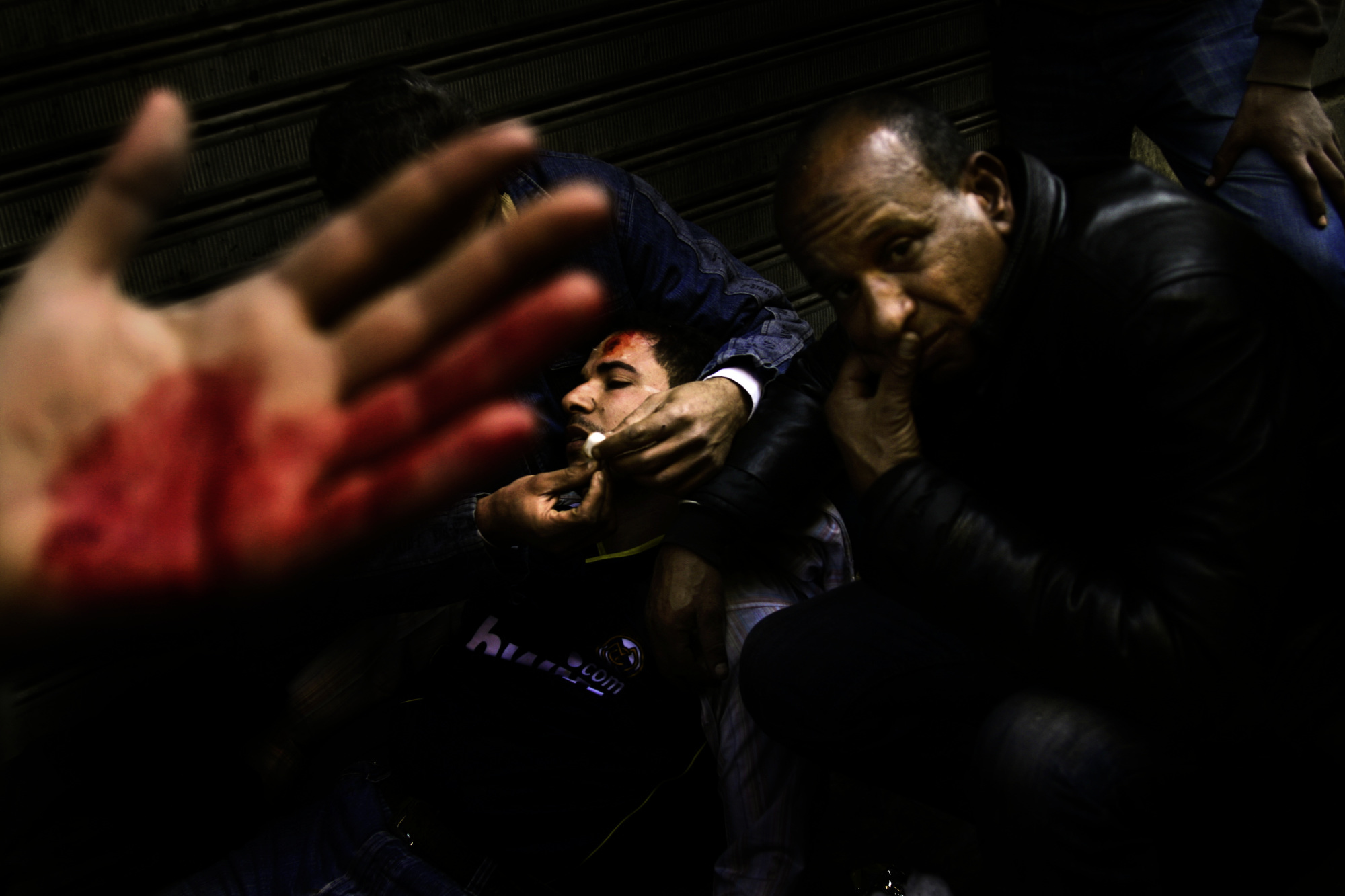
Credits
Text Edward Siddons
Photography Laura El-Tantawy
